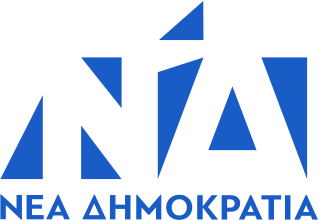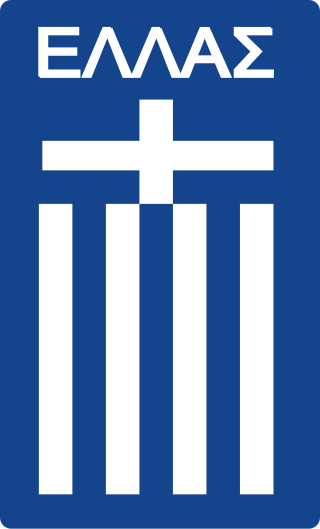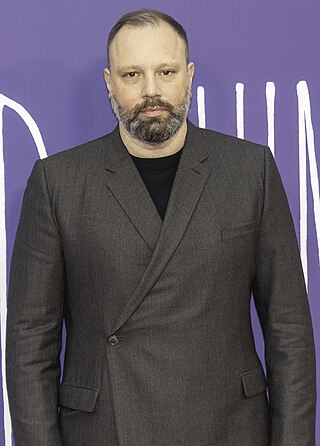Related Research Articles

Albania, officially the Republic of Albania, is a country in Southeast Europe. The country is located in the Balkans on the Adriatic and Ionian Seas within the Mediterranean Sea and shares land borders with Montenegro to the northwest, Kosovo to the northeast, North Macedonia to the east and Greece to the south. Spanning an area of 28,748 km2 (11,100 sq mi), it displays a varied range of climatic, geological, hydrological and morphological conditions. The country's landscapes range from rugged snow-capped mountains in the Albanian Alps and the Korab, Skanderbeg, Pindus and Ceraunian Mountains, to fertile lowland plains extending from the coasts of the Adriatic and Ionian seas. Tirana is the capital and largest city in the country, followed by Durrës, Vlorë, and Shkodër.

Athens is a major coastal urban area in the Mediterranean, and it is both the capital and the largest city of Greece. With its urban area's population numbering over four million, it is also the fifth largest urban area in the European Union. Athens dominates and is the capital of the Attica region and is one of the world's oldest cities, with its recorded history spanning over 3,400 years, and its earliest human presence beginning somewhere between the 11th and 7th millennia BC. The city was named after Athena, the ancient Greek goddess of wisdom.

The Balkans, corresponding partially with the Balkan Peninsula, is a geographical area in southeastern Europe with various geographical and historical definitions. The region takes its name from the Balkan Mountains that stretch throughout the whole of Bulgaria. The Balkan Peninsula is bordered by the Adriatic Sea in the northwest, the Ionian Sea in the southwest, the Aegean Sea in the south, the Turkish straits in the east, and the Black Sea in the northeast. The northern border of the peninsula is variously defined. The highest point of the Balkans is Musala, 2,925 metres (9,596 ft), in the Rila mountain range, Bulgaria.

Cyprus, officially the Republic of Cyprus, is an island country located in the eastern Mediterranean Sea, south of the Anatolian Peninsula and west of the Levant. It is geographically in Western Asia, but its cultural ties and geopolitics are overwhelmingly Southeastern European. Cyprus is the third-largest and third-most populous island in the Mediterranean. It is located north of Egypt, east of Greece, south of Turkey, and west of Lebanon and Syria. Its capital and largest city is Nicosia. The northeast portion of the island is de facto governed by the self-declared Turkish Republic of Northern Cyprus.

Greece, or Hellas, officially the Hellenic Republic, is a country in the Southeast Europe, located on the southern tip of the Balkan peninsula. Greece shares land borders with Albania to the northwest, North Macedonia and Bulgaria to the north, and Turkey to the east. The Aegean Sea lies to the east of the mainland, the Ionian Sea to the west, and the Sea of Crete and the Mediterranean Sea to the south. Greece has the longest coastline on the Mediterranean Basin, featuring thousands of islands. The country consists of nine geographic regions, and it has a population of nearly 10.48 million. Athens is the nation's capital and the largest city, followed by Thessaloniki and Patras.

The economy of Greece is the 53rd largest in the world, with a nominal gross domestic product (GDP) of $242.385 billion per annum. In terms of purchasing power parity, Greece is the world's 54th largest economy, at $416.969 billion per annum. As of 2022, Greece is the sixteenth-largest economy in the European Union. According to the International Monetary Fund's figures for 2023, Greece's GDP per capita is $23,173 at nominal value and $39,864 at purchasing power parity.

In ancient Greek mythology and religion, Persephone, also called Kore or Cora, is the daughter of Zeus and Demeter. She became the queen of the underworld after her abduction by and marriage to her uncle Hades, the king of the underworld.

The Greeks or Hellenes are an ethnic group and nation native to Greece, Cyprus, southern Albania, Anatolia, parts of Italy and Egypt, and to a lesser extent, other countries surrounding the Eastern Mediterranean and Black Sea. They also form a significant diaspora, with many Greek communities established around the world.

Constantine II was the last king of Greece, reigning from 6 March 1964 until the abolition of the Greek monarchy on 1 June 1973.

Gyros, sometimes anglicized as a gyro in some regions, is meat cooked on a vertical rotisserie, then sliced and served wrapped or stuffed in pita bread, along with other ingredients such as tomato, onion, fried potatoes, and tzatziki. In Greece, it is normally made with pork or sometimes with chicken, whilst beef and lamb are also used in other countries.

The Hellenic Air Force is the air force of Greece. It is considered to be one of the largest air forces in NATO and is globally placed 18th out of 139 countries. Under the Kingdom of Greece from 1935 to 1973, it was known as the Royal Hellenic Air Force (RHAF).

New Democracy is a liberal-conservative political party in Greece. In contemporary Greek politics, New Democracy has been the main centre-right political party and one of the two major parties along with its historic rival, the Panhellenic Socialist Movement (PASOK). New Democracy and PASOK were created in the wake of the toppling of the military junta in 1974, and ruled Greece alternately for the next four decades. Following the electoral decline of PASOK, New Democracy remained one of the two major parties in Greece, the other being the Coalition of the Radical Left (SYRIZA). The party was founded in 1974 by Konstantinos Karamanlis and in the same year it formed the first cabinet of the Third Hellenic Republic. New Democracy is a member of the European People's Party, the largest European political party since 1999, the Centrist Democrat International, and the International Democrat Union.

The Greece national football team represents Greece in men's international football matches, and is controlled by the Hellenic Football Federation, the governing body for football in Greece. Starting in 2023, Greece play their home matches in Nea Filadelfeia, a suburb of Athens, at the newly built Agia Sophia Stadium. Greece is one of only ten national teams to have been crowned UEFA European Champions.

The Super League Greece 1, or Stoiximan Super League for sponsorship reasons, is the highest professional association football league in Greece. The league was formed on 16 July 2006 and replaced Alpha Ethniki at the top of the Greek football league system. It consists of 14 teams and runs from August to May, with teams playing 26 games each followed by a 10-game play-off to decide the champions.

Leo (♌︎) is the fifth sign of the zodiac. It corresponds to the constellation Leo and comes after Cancer and before Virgo. The traditional Western zodiac associates Leo with the period between about July 23 and August 22, and the sign spans the 120th to 150th degree of celestial longitude.

Scorpio (♏︎) is the eighth astrological sign in the zodiac, originating from the constellation of Scorpius. It spans 210–240° ecliptic longitude. Under the tropical zodiac, the Sun transits this sign on average from October 23 to November 21. Depending on which zodiac system one uses, someone born under the influence of Scorpio may be called a Scorpio or a Scorpionic.

Kyriakos Mitsotakis is a Greek politician who has been prime minister of Greece since June 2023. He was also the prime minister of Greece from July 2019 to May 2023, and is president of the New Democracy party since 2016. On 26 June 2023, Mitsotakis won a second term as prime minister after winning the June 2023 Greek legislative election. Mitsotakis previously was Leader of the Opposition from 2016 to 2019, and Minister of Administrative Reform from 2013 to 2015. He is the son of the late Konstantinos Mitsotakis, who was Prime Minister of Greece from 1990 to 1993. He was first elected to the Hellenic Parliament for the Athens B constituency in 2004. After New Democracy suffered two election defeats in 2015, he was elected the party's leader in January 2016. Three years later, he led his party to a majority in the 2019 Greek legislative election.

The Byzantine Empire, also referred to as the Eastern Roman Empire, was the continuation of the Roman Empire centered in Constantinople during Late Antiquity and the Middle Ages. The eastern half of the Empire survived the conditions that caused the fall of the West in the 5th century AD, and continued to exist until the fall of Constantinople to the Ottoman Empire in 1453. During most of its existence, the empire remained the most powerful economic, cultural, and military force in the Mediterranean world. The term "Byzantine Empire" was only coined following the empire's demise: its citizens referred to the polity as the "Roman Empire" and to themselves as "Romans". Due to the imperial seat's move from Rome to Byzantium, the adoption of state Christianity, and the predominance of Greek instead of Latin, modern historians continue to make a distinction between the earlier "Roman Empire" and the later "Byzantine Empire".

Yorgos Lanthimos is a Greek film-maker. He is known for directing psychological thrillers, black comedies and horror films. He has received numerous accolades, including a BAFTA Film Award as well as nominations for three Academy Awards and three Golden Globe Awards.

Giannis Sina Ugo Antetokounmpo is a Greek-Nigerian professional basketball player for the Milwaukee Bucks of the National Basketball Association (NBA). His country of origin, in addition to his size, speed, strength, and ball-handling skills have earned him the nickname "Greek Freak". He is widely regarded as one of the greatest power forwards and one of the greatest players of all time.
References
- ↑ Μαυρικίδου, Κορίνα (2023-05-02). "Καθηγήτρια Αφροδίτη Κτενά | Υποψήφια του Κ.Κ.Ε. στον Βόρειο Τομέα Αθηνών". Hub ΕΚΠΑ (in Greek). Retrieved 2023-12-27.